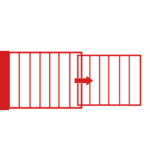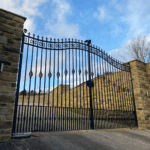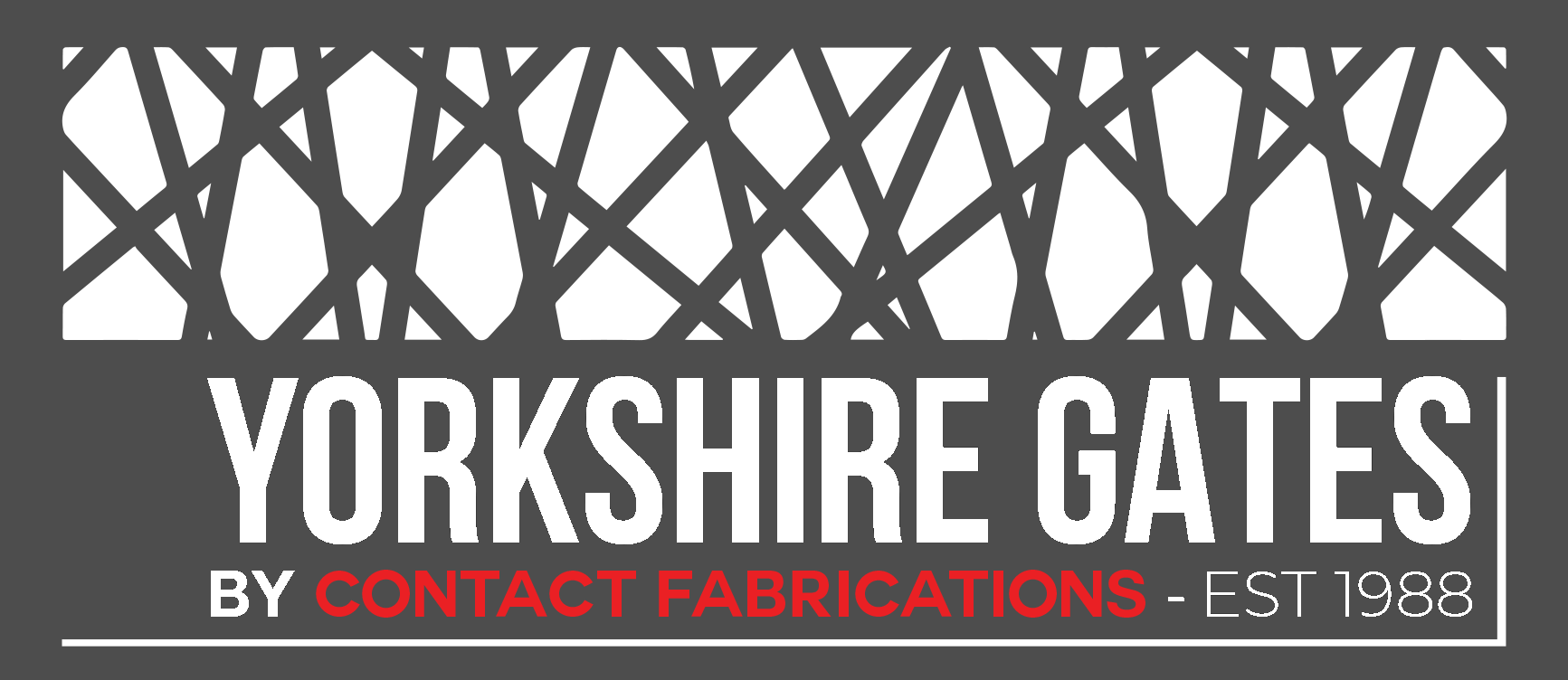Gate Guide
Your step by step, prep guide to your perfect gate, covering everything from planning permission to gate styles and more.
This is not an easy question to answer as there are a number of variables. These include negative impact on local sites, privacy and the public interest.
If you’re thinking of doing any kind of building work on your property, you need to at least think of applying for planning permission, these will vary dependant on your local authority.
You’ll need to apply for planning permission if you want to erect or add a fence, wall or gate if any of the following apply:
- If your new installation would be more than a metre high, and situated next to a highway used by vehicles, or a footpath attached to one of these highways.
- If your new installation would be more two metres high anywhere else.
- If your right to put up or alter fences, walls and gates is removed by an Article 4 planning direction or planning condition.
- If the property is a listed building, or in the curtilage of a listed building.
- If your installation (or any boundary relating to it) forms a boundary with an adjacent listed building or its curtilage.
If you live in a conservation area, like an Area of Natural Beauty or a National Park, then you’ll probably find that the criteria for any new developments (including your electric gates) will be a lot stricter. It’s wise to check with the local authority even if you’re sure that your gates meet the permitted development criteria, largely because as we’ve mentioned, permissions will vary across postcodes.
If your gates are likely to substantially change the aesthetics or appearance of your property, especially if it’s several decades or even centuries old, then it’s likely that they’ll require planning permission.
Gates are vital in helping you to secure and protect your private residence and giving you added peace of mind. Security gates are a long-term financial investment. They will help to keep your home both monitored and protected.
Manual gates have no electronics and are controlled by hand, except where auto-closers are used. They also have locks that must be operated by hand.
With the absence of electronic features, a manual gate will be more affordable and easier to maintain than automatic gates.
The convenience of an automatic gate over a manual gate comes from the fact that the former is driven by a motor. There is also the added benefit or not having to get in and out of your vehicle to open and close your gate.
The most common types of electric gates are swing, sliding and bi-folding.
Thet cost of automatic gates varies widely depending on materials, design and size. If bidget permits, additional security features can also be added such as sensors, intercoms and solar panels to mention just a few.
Swing Gates
This is the most popular style of gate and are renowned for being low-maintenance.
Sliding Gates
The perfect solution for driveways that arent perfectly level or have a lack of space. These typically run on a track to ensure a smooth sliding process.
Cantilever Gates
These are similar to sliding gates but do not need a track to run on, perfect for spaces where groundwork needs to be kept to a minimum.
Telescopic
Ideal for smaller openings, telescoping gates slide together which helps when space is at a minimum.
Aluminium
These gates are lighter, stronger and require low maintenance. They’re also 90% recyclable.
Wrought Iron
This traditional material has been used for centuries and is very long-lasting. Wrought Iron can be very easily customers giving you a wide range of styles to choose from.
Composite
Made from a mixture of timber and HDP (High Density Polyethylene), composite gates are durable, long-lasting and are environmentally friendly. They come in a wide range of colours and also require very little maintenance.
This may differ depending on your style of gate and energy provider, but we can calculate roughly how much it will cost to run your gate.
Most gates will run on 230v power supply. This is suitable for gates that arent going to open and close more than eight times per hour. On average, domestic gates will open and close 15 times during a 24 hour period.
On standby, electric gates will consume around 100 watts of electricity per day. If the gates are active, this can be upto around 700 watts. Average gate opening and closing cylces will last around 20 seconds in each direction. This works out at around 0.2p for every cycle of your gate.
If we take the average number of times a gate will open and close to be 15, the cost over a year will be around £15. That works out at around 28 pence per week. Subtract the days you go out less, winter for example or during a holiday and the cost gets lower.
We recommend a yearly service to ensure you gate stays in top condition. Our services include diagnostics, cleaning and more. Click here to find out more.
If you have any questions that we haven’t answered above, please don’t hesitate to get in touch via our contact page.
The Brands We Work With










Get a Free Quote
If you would like us to come out to give you a FREE no obligation quote or just want to discuss your requirements please call or complete the form and we will contact you:


